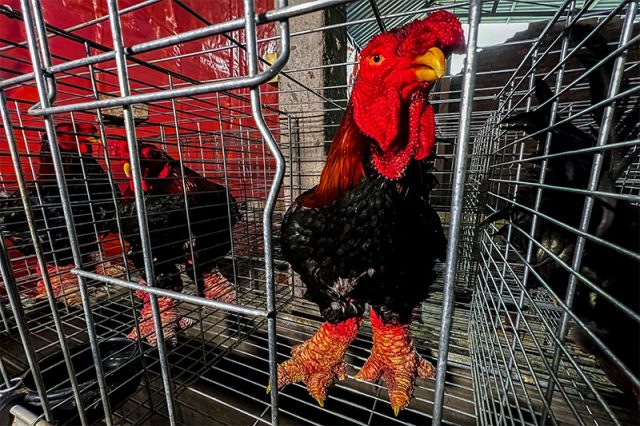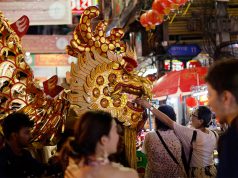
HANOI — Known for their strangely large feet, Dong Tao chicken has for generations been a delicacy in Vietnam and mostly consumed during the Lunar New Year holiday.
The rare breed of poultry, also known as dragon chicken, feature a pair of scaly red feet as large as a beer can, originates from Dong Tao, a village 30 kms (18 miles) southeast of Hanoi.
Dong Tao chicken, weighing up to 6 kg (13 pounds) each when fully grown and once reserved only for the royals, are believed to bring good fortune and wealth to their owners.
Today, demand for Dong Tao chicken, whose meat has a crunchy texture, a distinct fragrant aroma and a rich flavor, has risen sharply, backed by a growing number of wealthy people in one of Asia’s fastest-growing economies.
“A fully grown dragon chicken of at least one-year-old farmed in Dong Tao village is sold for up to 5 million dong ($205.38) or sometimes even 10 million dong,” said Le Trong Dung, a chicken farmer in the village.
Nguyen Thi Hong Nhung, a local chicken farmer, said the most valuable parts of the chicken are its legs, as she held a two-year-old rooster in her hands.
Loc Duc Toan, a 25-year-old chef in Hanoi, said a Dong Tao chicken has its best taste at the age of 13 to 15 months, adding that steaming is one of the best ways to cook it.
“When steamed, the skin will be crispy with a fragrant aroma of its own and a sweeter meat compared to other normal chicken,” Toan said.
The chickens are now also raised beyond the village, offering a chance for a wider range of consumers, but according to local agriculture official Phan Van Hieu, those raised in the village and fed purely with paddy rice and corn have the best taste.
“Production hasn’t met domestic demand yet,” Hieu said. “I’m sure you won’t find any Dong Tao chicken in any KFC restaurants in foreseeable future.”
($1 = 24,345 dong)
— Reporting by Khanh Vu, Minh Nguyen and Thinh Nguyen; Editing by Michael Perry









